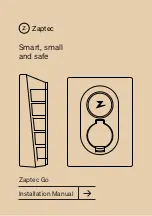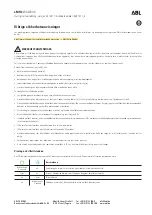
WELDING
TSB Revision
BASE OF BODY REPAIR
9-13
GAS WELDING
Gas welding is a method in which a high temperature flame is
used to melt both a welding rod and the base metal (panels) to
make a fused joint. Oxy-acetylene is the most common type of
gas welding. However, because of the extremely high tempera-
ture of the fused joint, the strength of the steel plate deterio-
rates, and there is a higher possibility of warping. This method,
therefore, is not very suitable for body repair.
.
The flame in gas welding can be classified according
to the ratio of acetylene and oxygen.
1.
Carburizing flame (acetylene-rich flame)
This flame has an excess of acetylene or a defi-
ciency of oxygen. The incomplete combustion
gives off a black smoke, and two flame cores can
be seen inside the deformed yellow flame. The
flame itself is large, but the temperature is rela-
tively low, making this flame unsuitable for weld-
ing.
2.
Standard flame (neutral-mixture flame)
This flame has approximately equal amounts of
acetylene and oxygen. The length is shorter than
that of the carburizing flame; the flame core is
rounded; and it is clear and bright.
The carbon in the acetylene is burned completely,
resulting in the maximum obtainable temperature.
This is the flame most commonly used for weld-
ing.
3.
Peroxide flame (oxygen-rich flame)
This flame has an excess of oxygen or a defi-
ciency of acetylene. The flame core is shorter
and sharper, and the entire flame has a black-
ish-purplish color. The combustion is unstable,
and the flame flickers continuously.
.
Notes with regard to gas welding
1. Handle the oxygen and acetylene tanks carefully.
2. Adjust the flame in accordance with the type of
metal being welded.
3. Select a nozzle to match the work to be done.
Avoid overheating and adhesion of foreign matter
(dirt, etc.)
4. The following points are particularly important
when welding mild steel plate.
•
Melt a sufficient amount of welding rod, but be
careful not to melt the base metal. Use the
same amount of welding rod on both sides.
•
Use the correct amount of welding rod in
accordance with the melting point of the base
metal.
•
Avoid welding over places which have been
welded before.
•
In order to avoid warping, do only the amount
of tack welding that is absolutely required.
AB200049
Deposite
Base metal
Welding
rod
Oxy-acetylene
flame
AD
AB200050
Flame core
Outer flame
Acetylene cone
AE
1. Carburizing flame
Outer flame
Outer flame
Flame core
Flame core
2. Standard flame
3. Peroxide flame
Summary of Contents for Lancer Evolution 2008
Page 31: ...THEFT PROTECTION TSB Revision BODY CONSTRUCTION 1 29 LOCATIONS AC710510 D A B F E D AC E F C ...
Page 37: ...BODY DIMENSIONS AND MEASUREMENT METHODS TSB Revision BODY DIMENSIONS 2 3 NOTES ...
Page 41: ...TYPE A PROJECTED DIMENSIONS TSB Revision BODY DIMENSIONS 2 7 NOTES ...
Page 60: ...NOTES ...
Page 113: ...FENDER SHIELD TSB Revision WELDED PANEL REPLACEMENT 3 5 AB700994 J E C F B AB B G C H D ...
Page 166: ...NOTES ...
Page 177: ...5 1 GROUP 5 SYNTHETIC RESIN PARTS CONTENTS LOCATION OF SYNTHETIC RESIN PARTS 5 2 ...
Page 186: ...NOTES ...
















































